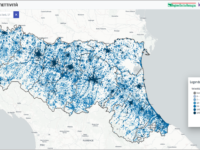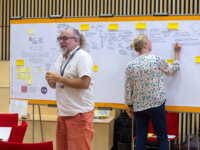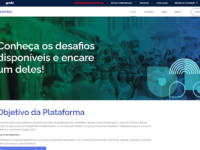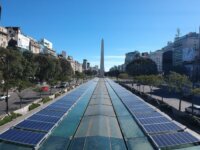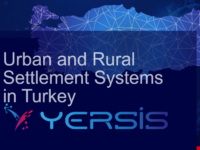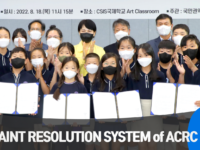Emilia-Romagna’s Digital Agenda led a significant innovation process for public administration decision-making. The process resulted in a co-design phase with local administrations to structure and publish online the first geo-referenced regional Observatory on ultra-broadband connectivity in Italy. Multi-stakeholder participation made it possible to identify and highlight the various strengths and weaknesses of the tool, enabling its optimisation.
Innovation Tag: Cross-Sector Partnerships
The Local Wealth Building Challenge Fund is designed to provide financial and non-financial support to develop new products and services to tackle challenges. One aspect of this Challenge Fund which is unusual is the focus on developing innovations that will be procured by the challenge holder, providing additional incentives and focus. Public and third sector organizations often have issues that can be solved not by getting new skills or more workers, but by being innovative. The Challenge…
The Acolhe Programme offers private network accommodation for women in situations of violence in more than 230 municipalities in Brazil in partnership with municipal networks for confronting violence. In addition to offering reception, the programme acts on the municipality's referral flow by demanding a public response to the problem and offering qualification.
The pandemic has caused a significant increase in amount of people living on the street, who often have no documents and makes access to justice difficult. Pop Rua Jud brought together justice organisms and other public agencies in the same place to prevent citizens from being referred from one public agency to another, without solving their problem. It was innovative in that it brought together almost 50 federal, state and municipal public institutions, as well as civil society organisations,…
Brazilian Challenges Platform (PLataforma Desafios) is an initiative of the Government Innovation Division, GNova, of the National School of Public Administration (Enap), which offers help to public managers to innovate together with society, taking advantage of collective intelligence to reduce the insecurities of the innovation process and increase the chances of success. The Challenges Platform recognises, rewards and disseminates innovative solutions, through a process similar to…
Case Study
School-Effect Indicator: An analysis of schools, using artificial intelligence, according to the…
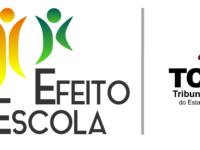
The São Paulo State Court of Auditors built a new analysis methodology, the School-Effect Indicator (IEE), which includes factors such as the socioeconomic status of students in the evaluation of school effectiveness. Through Artificial Intelligence (AI), it is calculated how much the school has contributed to the competence of its students, highlighting the principle of equity, recognizing the needs of each school group and working to reduce the impact of differences.
The Buenos Aires City Government launched Climate Action, an open data platform that brings together energy efficiency, sustainability and waste management policies to combat climate change in the city. The platform is based on transparency, co-creation, collaboration, citizen participation, accountability and innovation. BA Climate Action was co-created with civil society organizations, environmental experts and citizens.
Socioeconomic relations of all levels of settlements are examined with big data at the scale of the smallest settlements to the metropolitans (81 provinces, 973 districts and 37.036 rural units) in Türkiye. The attributes, needs and comparative advantages of each of the settlements analyzed in YER-SIS with an innovative methodology will enable evidence-based national and regional development policies. Public and private sectors, universities, and NGOs are primarily users benefiting from…
The innovation refers to a structured platform for cooperation between the Municipality of Amaroussion and the private sector for the public benefit. Corporate Social Responsibility resources are used to cover identified local needs in synergy with public interventions/services. Following a minor organisational reform, a team of officials has been trained to implement an innovative customised methodology that allows visibility and accountability and promotes the extroversion of public sector.
South Korea’s National Ombudsman Institution, Anti-Corruption and Civil Rights Commission (ACRC) is the only public agency in the country that handles all civil collective complaints against governments. ACRC’s collective complaint resolution effectively coordinates and mediates complicate large-scale complaints and suggests alternatives agreed by all parties. The system protects citizens from the infringement of rights and interests and prevents the occurrence of social conflicts.

